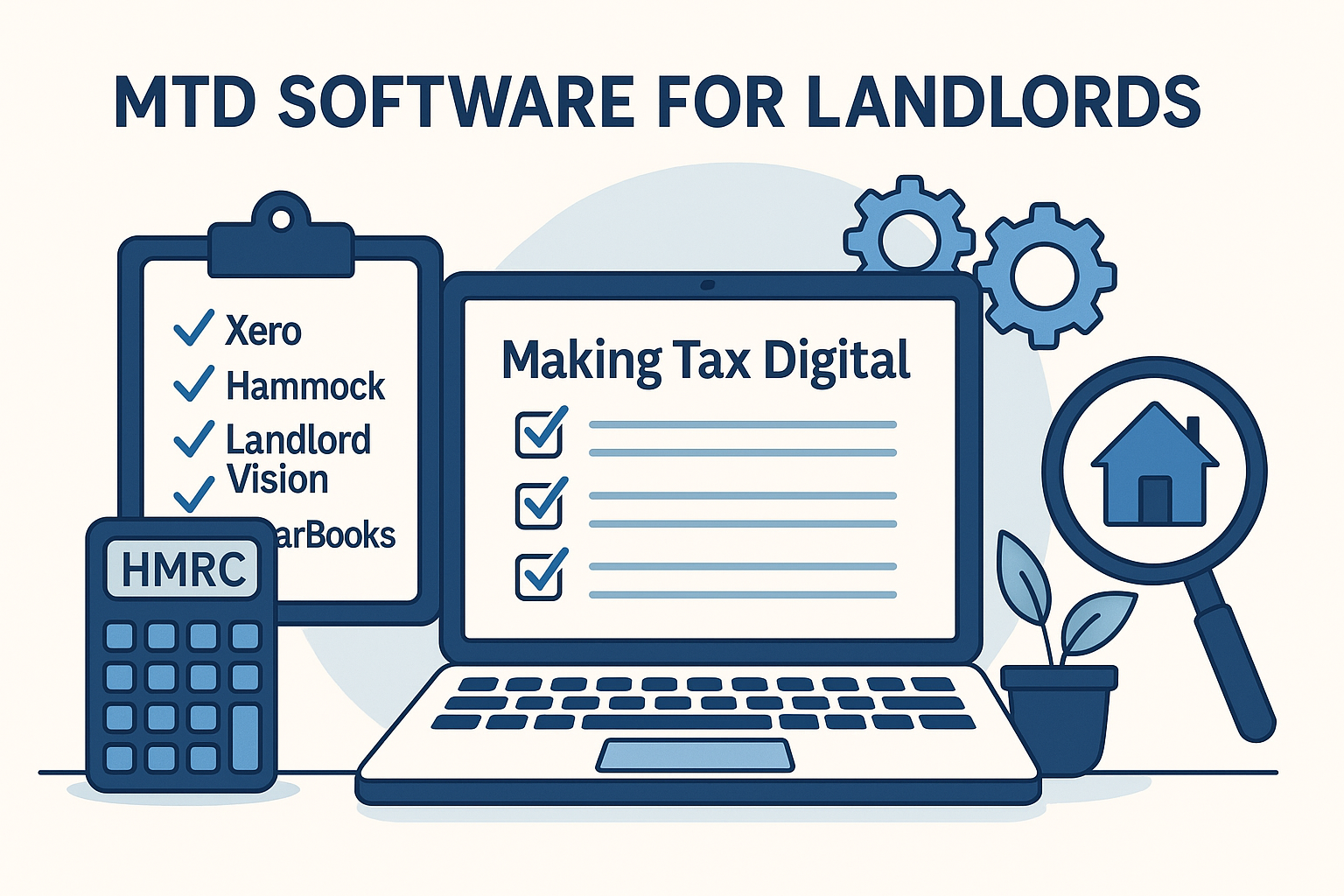Pregnancy is often a time of hope and excitement, but sometimes unexpected complications arise. One such complication is a missed abortion—a condition where the pregnancy has stopped developing, but the body has not yet recognized the loss.
In this blog, we will explain what a missed abortion is, its causes, symptoms, and how doctors in Dubai diagnose and treat it. We’ll also discuss safe medical management options, emotional support, and the legal aspects of abortion care in the UAE, so women can make informed and confidential choices about their health.
What Is a Missed Abortion?
A missed abortion, sometimes called a missed miscarriage, happens when the embryo or fetus stops developing inside the womb, but the body does not immediately expel the pregnancy tissue. Unlike other forms of pregnancy loss where bleeding and cramping occur quickly, in a missed abortion there may be no obvious signs at first. This makes it more difficult for women to realize that something has gone wrong without a medical check-up.
The difference between a missed abortion and a miscarriage lies mainly in how the body responds so early use of Fertility supplements for women is preffered.. In a typical miscarriage, pregnancy tissue is expelled naturally, often accompanied by pain and bleeding. In a missed abortion, the pregnancy has ended, but the uterus still holds the tissue, leading to a delayed recognition of the loss.
Doctors usually confirm this condition through an ultrasound scan or blood tests that measure pregnancy hormone (hCG) levels. Understanding this distinction is important, as a missed abortion often requires medical or surgical management to avoid health risks.
Causes of Missed Abortion
A missed abortion can occur for many reasons, most of which are beyond a woman’s control. Doctors emphasize that in most cases, it is not caused by anything the mother did or did not do. Below are the most common causes:
Chromosomal Abnormalities
The leading cause of a missed abortion is problems with the baby’s chromosomes. These are the building blocks of life that carry genetic information. If an embryo has too many or too few chromosomes, it may not develop normally, leading to an early pregnancy loss. This is a natural process where the body stops a pregnancy that cannot continue.
Hormonal Issues
Certain hormonal imbalances can interfere with pregnancy development. Low levels of progesterone, for example, make it harder for the uterus to support a growing pregnancy. Women with untreated polycystic ovary syndrome (PCOS) or irregular hormonal cycles may face a higher risk.
Maternal Health Conditions
Underlying medical problems in the mother can also lead to missed abortion. Common risk factors include:
- Thyroid disorders (overactive or underactive thyroid)
- Uncontrolled diabetes
- Infections during pregnancy that affect the uterus or bloodstream
These conditions can impact the baby’s growth and survival.
Lifestyle and External Factors
While less common, lifestyle choices and environmental exposure may play a role. Smoking, excessive alcohol use, drug abuse, and long-term exposure to harmful chemicals can increase the chances of pregnancy complications. Severe stress or physical trauma may also contribute, though they are rarely the sole cause.
Understanding these missed abortion causes helps in planning future pregnancies and in reducing avoidable risk factors. However, it’s important to remember that most cases result from natural chromosomal or developmental issues that cannot be prevented.
Symptoms of Missed Abortion
One of the most challenging aspects of a missed abortion is that it often occurs without obvious warning signs. Many women continue to feel pregnant for days or weeks, even though the pregnancy has stopped developing. Still, there are some indicators that may raise concern.
Absence of Pregnancy Symptoms
Some women notice that their early pregnancy symptoms suddenly fade. For example, nausea, vomiting, fatigue, or breast tenderness may decrease or disappear altogether. While these changes do not always mean something is wrong, a sudden loss of symptoms can sometimes signal an underlying problem.
Spotting or Light Bleeding
Mild spotting or brown discharge may occur in a missed abortion. Unlike a typical miscarriage, heavy bleeding and severe cramping are usually absent at the beginning. This makes the condition more difficult to recognize without medical evaluation.
Lack of Fetal Heartbeat on Ultrasound
The most reliable sign of a missed abortion is found during an ultrasound diagnosis. If the scan shows no fetal heartbeat or that the embryo has not grown as expected, doctors may confirm a missed abortion. In some cases, repeat ultrasounds and blood tests (to check hCG hormone levels) are needed to be certain.
Recognizing these missed abortion signs is essential for early medical care. Since symptoms can be subtle, regular prenatal check-ups are the best way to identify early pregnancy complications and ensure timely treatment.
How Missed Abortion Is Diagnosed in Dubai
Because a missed abortion often shows very few outward symptoms, medical testing is usually the only way to confirm it. In Dubai, doctors follow internationally recognized methods to ensure an accurate diagnosis and safe care for women.
Role of Ultrasound Scan
An ultrasound scan is the primary tool for detecting a missed abortion. During the scan, the doctor checks if the embryo is developing properly and whether a fetal heartbeat can be seen. If no heartbeat is detected after a certain stage of pregnancy, or if the embryo has stopped growing, this strongly suggests a missed abortion. Sometimes, doctors schedule a repeat scan a week later to confirm the finding before proceeding with treatment.
hCG Blood Test Monitoring
Human chorionic gonadotropin (hCG) is the hormone produced during pregnancy. In a healthy pregnancy, hCG levels typically rise steadily. If levels plateau or decline instead of increasing, it may indicate that the pregnancy has stopped progressing. Doctors in Dubai often use serial hCG tests alongside ultrasound scans to reach a confident diagnosis.
Consultation With a Gynecologist
A missed abortion should always be confirmed by an experienced OB-GYN in the UAE. The gynecologist reviews medical history, symptoms, and test results before recommending the next steps. This consultation is also an opportunity for women to ask questions, understand their options, and receive emotional support during a difficult time.
In short, missed abortion diagnosis in Dubai relies on a combination of ultrasound imaging, hormone monitoring, and specialist consultation. Together, these ensure that women receive the right care with accuracy and compassion.
Treatment Options for Missed Abortion
Once a missed abortion is confirmed, a woman has several options for safe management. The right approach depends on her health, stage of pregnancy, and personal preference. In Dubai, doctors explain each option carefully so that women can make informed decisions.
Expectant Management (Waiting Naturally)
In some cases, women may choose to let the body expel the pregnancy tissue on its own. This process, called expectant management, can take days or even weeks. It avoids medical or surgical intervention, but it requires close monitoring by a gynecologist to ensure there are no complications such as infection or heavy bleeding.
Medical Management (Abortion Pills in Dubai)
Another option is medical management, which involves using abortion pills under a doctor’s supervision. These medicines help the uterus contract and expel the tissue safely. This approach is often recommended in the early stages of pregnancy. In Dubai, medical abortion must be prescribed and monitored by a licensed OB-GYN to ensure both safety and legality. Women are usually guided on what to expect, how to manage discomfort, and when to seek medical help if needed.
Surgical Options (D&C / Evacuation Procedure)
For women who prefer a quicker process—or when other methods are not effective—surgical management may be advised. The most common procedure is dilation and curettage (D&C), where the uterus is gently cleared of tissue under anesthesia. This is a safe and widely practiced method in the UAE, performed in hospitals and specialized clinics. Surgical treatment offers faster recovery but, like any procedure, carries some risks that a gynecologist will explain.
Each of these missed abortion treatment options has its advantages and considerations. With proper medical guidance, women in Dubai can access safe and confidential care that protects both their physical health and emotional well-being.
Emotional and Mental Health Support
Experiencing a missed abortion is not only a physical challenge but also an emotional one. Many women feel shock, sadness, or even guilt when they learn that their pregnancy has stopped developing. It is important to remember that a missed abortion is rarely caused by anything the mother did, and seeking the right support can make recovery easier.
Coping With Grief and Loss
Pregnancy loss can bring feelings of emptiness, anger, or depression. These emotions are natural and should not be ignored. Allowing yourself time to grieve, talking openly with trusted loved ones, and practicing self-care are all essential parts of healing. Journaling, meditation, and gentle physical activity can also help reduce stress during this difficult time.
Counseling and Support Groups in Dubai
Professional counseling is often very beneficial after a missed abortion. In Dubai, there are qualified psychologists and women’s health counselors who provide confidential sessions to help women process their emotions. Some hospitals and clinics also connect patients with support groups, where women can share their experiences and find comfort in knowing they are not alone.
By acknowledging the emotional impact of missed abortion and accessing the right resources—whether through private therapy or community support—women can take positive steps toward healing after pregnancy loss.
Legal and Cultural Considerations in Dubai
When discussing abortion or pregnancy loss in Dubai, it’s important to understand the legal and cultural context. The UAE has specific regulations regarding abortion procedures, and women should be fully informed about their rights, options, and the confidentiality of their care.
UAE Regulations Around Abortion and Medical Procedures
In the UAE, abortion is generally restricted and only allowed under specific circumstances—such as when the mother’s life is at serious risk, or in some cases where the fetus has a severe, untreatable condition. All decisions must be approved and supervised by licensed doctors. For cases like missed abortion, where the pregnancy has already ended but the body has not expelled the tissue, medical intervention is typically permitted as it is considered a necessary treatment rather than an elective choice.
Privacy and Confidentiality in Women’s Healthcare
Dubai places strong emphasis on privacy and patient confidentiality. Women seeking care for a missed abortion, whether through medical management or surgical procedures, can expect their medical records to be kept secure and private. Hospitals and clinics are bound by professional and legal obligations to protect patient information. This provides reassurance for women who may feel hesitant about seeking help due to cultural sensitivities.
Understanding these abortion laws in Dubai and the framework of UAE abortion rules ensures that women can make safe, informed decisions. Above all, the healthcare system prioritizes women’s well-being, ensuring that those facing pregnancy complications receive the necessary treatment with dignity and respect.
Safe Options With Abortion Pills in Dubai
For women experiencing a missed abortion, medical management is often an effective and less invasive option. In Dubai, this usually involves the use of abortion pills prescribed under medical supervision. Understanding when and how these pills may be used is important for both safety and peace of mind.
When Abortion Pills May Be Considered
Abortion pills are typically recommended in the early stages of pregnancy and are sometimes used to manage a missed abortion when the pregnancy has already stopped developing. The medication works by helping the uterus contract and expel the tissue naturally. This approach is often preferred by women who want to avoid surgery, provided it is clinically safe in their situation.
Medical Guidance and Precautions
Even though abortion pills may seem straightforward, they should never be taken without professional guidance. Dosage, timing, and aftercare are critical for effectiveness and safety. Doctors in Dubai may conduct an ultrasound or blood test first to confirm the condition before prescribing medication. Women are also advised to be monitored during the process to manage side effects such as cramping, bleeding, or nausea.
Why Consulting a Doctor Is Essential
It is important to note that in Dubai, the use of abortion pills is subject to strict medical regulations. Only a licensed OB-GYN can prescribe and supervise their use. Self-medicating or purchasing pills without prescription can be unsafe and legally risky. By consulting a qualified doctor, women can ensure they receive proper care, emergency support if needed, and complete confidentiality.
In summary, while it is possible to buy abortion pills in Dubai, it must be done under medical supervision for safety, legality, and peace of mind. With the right guidance, women can access safe abortion in Dubai through approved and confidential healthcare channels.
Safe Options With Abortion Pills in Dubai
For many women facing a missed abortion, medical management with pills can be a safe and effective alternative to surgery. However, in Dubai, this option must always be guided by professional medical advice to ensure both safety and compliance with healthcare regulations.
When Abortion Pills May Be Considered
Abortion pills are generally recommended in the early weeks of pregnancy, especially when the pregnancy has stopped developing and needs to be medically managed. In cases of missed abortion, doctors may prescribe these pills to help the uterus naturally expel the tissue without the need for surgical procedures. This approach is often chosen by women seeking a more private and less invasive option.
Medical Guidance and Precautions
While abortion pills can be highly effective, they must be taken under strict medical supervision. Dosage, timing, and follow-up care are essential for success and to avoid complications. In Dubai, gynecologists usually confirm the diagnosis through an ultrasound or blood test before prescribing the medication. Women are also advised to have access to emergency care in case of heavy bleeding, infection, or incomplete expulsion.
Why Consulting a Doctor Is Essential
Attempting to buy abortion pills in Dubai without a prescription can be unsafe and legally risky. Licensed doctors ensure that treatment is both safe and confidential, while also monitoring for side effects and complications. Consulting a qualified OB-GYN in the UAE provides reassurance that the process is handled with professionalism, respect, and privacy.
In short, while medical abortion in the UAE is an option for some women, it should only be considered with the support of healthcare professionals. This ensures a safe abortion in Dubai and protects a woman’s long-term health and well-being.
Prevention and Future Pregnancies
While a missed abortion is often due to factors beyond a woman’s control, there are steps that may help reduce risks in future pregnancies. Focusing on good health and professional care can support a safer and stronger pregnancy journey.
Regular Prenatal Care
Routine check-ups with a qualified gynecologist are one of the most effective ways of preventing missed abortion and other complications. Early ultrasounds, blood tests, and monitoring ensure that any issues are detected and managed in time. Women in Dubai can access advanced prenatal services that provide reassurance throughout pregnancy.
Lifestyle Changes for a Healthy Pregnancy
Adopting healthy habits before and during pregnancy can improve overall outcomes. This includes eating a balanced diet, avoiding smoking and alcohol, maintaining a healthy weight, and managing stress. Simple pregnancy health tips—like taking prenatal vitamins with folic acid—can strengthen the chances of a successful pregnancy.
Managing Medical Conditions Before Conception
Women with chronic health conditions such as diabetes, thyroid disorders, or hypertension should work with their doctors to bring these under control before trying to conceive again. Preconception counseling and fertility care in Dubai offer guidance for women who want to prepare their bodies for a healthy pregnancy.
Although not all risks can be eliminated, these proactive measures help support better outcomes and reduce the chances of repeated complications. With professional medical advice and healthy lifestyle choices, many women go on to have successful pregnancies after a missed abortion.
Conclusion
A missed abortion is a difficult experience, often occurring silently without immediate symptoms. As we’ve seen, the causes may include chromosomal abnormalities, hormonal imbalances, or maternal health conditions. Diagnosis usually involves ultrasound scans and hCG testing, followed by treatment options such as natural management, medical care with abortion pills in Dubai, or surgical procedures like D&C.
What matters most is that women receive safe, confidential, and professional care. In Dubai, licensed gynecologists provide compassionate guidance while ensuring full privacy and compliance with medical standards. Along with medical treatment, emotional support and counseling can play an important role in healing after pregnancy loss.
👉 For safe medical guidance and support, contact our team at abortionpillsindubai.com or call/WhatsApp +971 55 862 6600.
Frequently Asked Questions
Is a missed abortion the same as a miscarriage?
A missed abortion is a type of miscarriage, but unlike a typical miscarriage, the body does not immediately expel the pregnancy tissue. This is why it is sometimes called a missed miscarriage.
How is a missed abortion detected?
It is usually detected through an ultrasound scan and blood tests that measure pregnancy hormones. The absence of a fetal heartbeat or lack of growth confirms the diagnosis.
Can abortion pills treat missed abortion safely in Dubai?
Yes, in some cases abortion pills may be prescribed by a licensed gynecologist to manage a missed abortion. However, they must only be taken under medical supervision in Dubai for safety and legal compliance.
What are the risks of untreated missed abortion?
If left untreated, a missed abortion may lead to infection, heavy bleeding, or other complications. This is why timely medical evaluation and treatment are important.
How long does recovery take after a missed abortion?
Recovery time varies from woman to woman. Physically, most women recover within a few weeks, but emotional healing may take longer. Counseling and support can help during this process.








